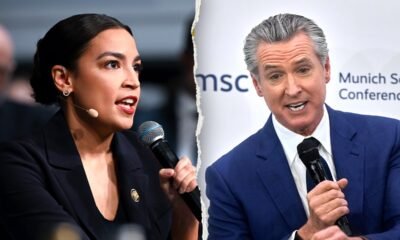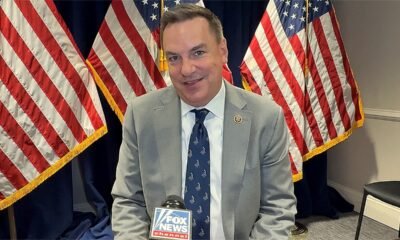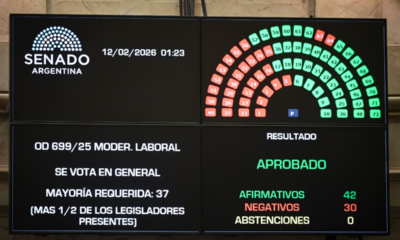INTERNACIONAL
‘Mass surveillance’: Conservatives sound alarm over Trump admin’s REAL ID rollout
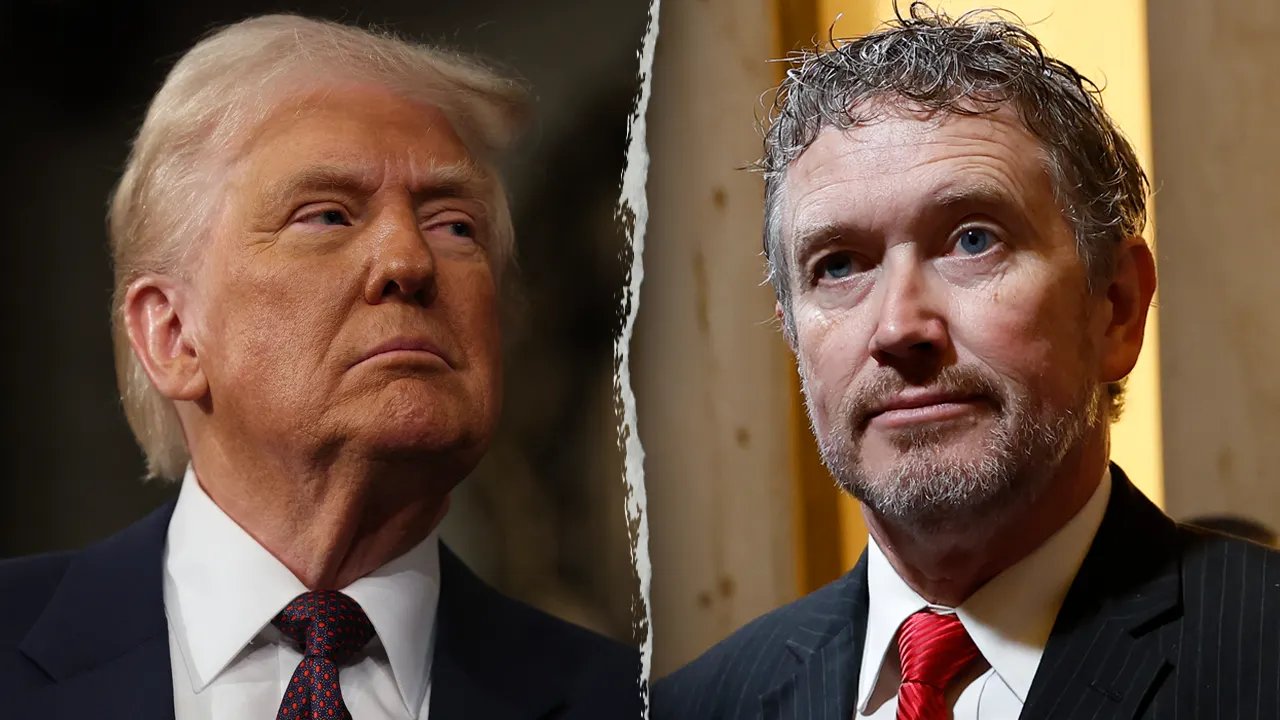
Conservatives are speaking out against the Trump administration’s plans to finally enact long-expected REAL ID laws in a bid to crack down on illegal immigration.
«If you think REAL ID is about election integrity, you’re going to be sorely disappointed. Someone has lied to you, or you’re engaged in wishful thinking. Please don’t shoot the messenger,» Rep. Thomas Massie, R-Ky., wrote on X earlier this week.
Responding to Department of Homeland Security (DHS) Secretary Kristi Noem’s video announcing the May 7 REAL ID deadline, the former vice presidential candidate and Alaska Gov. Sarah Palin questioned in a lengthy post: «Or what?? Evidently, existing ID requirements for American citizens just aren’t adequate now, so Big Brother is forcing us through more hoops for the ‘right’ to travel within our own country.»
Palin continued: «Other administrations delayed this newfangled, burdensome REAL ID requirement. Are you curious why its implementation is imperative now?? And who came up with this?»
NO ‘REAL ID’ APPOINTMENTS OPEN IN NEW JERSEY AS RESIDENTS SOUND OFF: ‘GET WITH THE TIMES, NJ’
Rep. Thomas Massie, R-Ky., right, is critical of the Trump administration’s REAL ID rollout. (AFP via Getty Images | Kevin Dietsch/Getty Images)
The REAL ID Act was passed in 2005, but the federal government has yet to implement it 20 years later. It requires all U.S. travelers to be REAL ID compliant when boarding domestic flights.
The Transportation Security Administration (TSA) announced last week that REAL ID would go into effect May 7, and that no other state-issued ID cards would be accepted for air travel.
TSA senior official Adam Stahl said in the announcement that REAL ID «bolsters safety by making fraudulent IDs harder to forge, thwarting criminals and terrorists.»
While an overwhelming majority of Republicans appear to have few issues with the change, some on the right have cried foul.
Massie argued in an X post, «As long as the pilot’s door is locked and no one has weapons, why do you care that someone who flies has government permission? REAL ID provides no benefit, yet presents a serious risk to freedom. If a person can’t be trusted to fly without weapons, why are they roaming free?»
REAL ID DEADLINE FOR TRAVELERS, SOME FEDERAL BUILDING ACCESS QUICKLY APPROACHING
Massie targeted President Donald Trump more directly in response to another X user who asked whether he was opposed simply because of his differences with the commander in chief. The Kentucky Republican has been known for multiple public spats with Trump.
«REAL ID is a 2005 George Bush-era Patriot Act overreach that went completely unenforced until Trump got into office. Let me guess: he’s playing 4D chess and I should just go along with it?» Massie wrote.
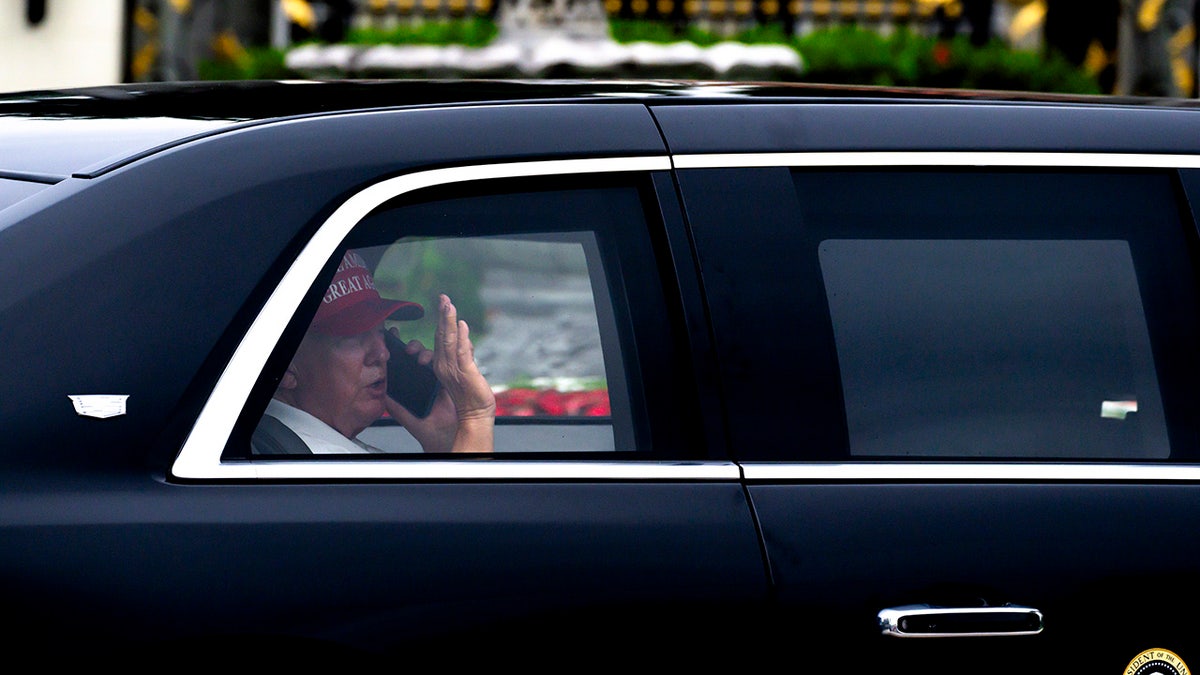
President Donald Trump waves from his vehicle as he arrives at the Trump International Golf Club in West Palm Beach, Florida, on Feb. 17. (AP Photo/Ben Curtis)
Former presidential candidate and ex-House Rep. Ron Paul, R-Texas, wrote on X, «Homeland Security chief Kristi Noem announced Friday that the notorious PATRIOT Act-era REAL ID scheme would go into effect at the end of the month. REAL ID is one of the greatest threats to Americans’ civil liberties in decades.»
Kentucky state Rep. TJ Roberts, a Republican, agreed with Paul on social media, writing, «Repeal REAL ID!!»
New Hampshire state Rep. Joe Alexander, a Republican, added on the accusations, calling REAL ID a «violation of the 14th Amendment of the US Constitution,» and writing, «the Federal Government should not be mandating ID for its citizens to travel between states. Just say NO.»
Cato Institute senior fellow Patrick Eddington told Fox News Digital, «I’m not aware of a single post-9/11 instance of an alleged or actual terrorist being apprehended, much less successfully boarding an airliner, with false ID credentials — which is the entire-stated rationale for REAL ID.»
Eddington argued it imposed unconstitutional burdens on people who are seeking to travel by air versus train.
«If you got word that your mother had just had a stroke and her prognosis was uncertain, and you wanted to quickly fly home to be with her but couldn’t because you didn’t have a REAL ID-compliant ID card, that would be one very real-world example of a tangible harm this insane law could cause on literally a daily basis,» he said.
«The REAL ID Act effectively institutes a form of mass surveillance and verification that doesn’t discriminate between those who have given reason for suspicion and those who haven’t, which is why it should never have been enacted in the first place.»

Homeland Security Secretary Kristi Noem visits the Mariposa Port of Entry in Nogales, Arizona, on March 15. (AP Photo/Alex Brandon)
Meanwhile, Trump ally Rep. Mark Alford, R-Mo., targeted critics in his own public statement.
«The REAL ID Act was passed way back in 2005, 20 years ago!!!! It’s about time everyone stop dragging their feet. Quit scrolling through social media, quit complaining, get your info together, and get down to the DMV to get your REAL ID,» Alford said Wednesday.
The DHS has argued that implementing REAL ID now will help the Trump administration further its goals in cracking down on illegal immigration.
A DHS memo obtained by Fox News Digital earlier this week argued in favor of its implementation, that REAL ID «closes the gaping vulnerabilities Biden’s policies created, preventing criminals and potential terrorists from exploiting our aviation system, as seen during 9/11 when fraudulent IDs enabled attacks.»
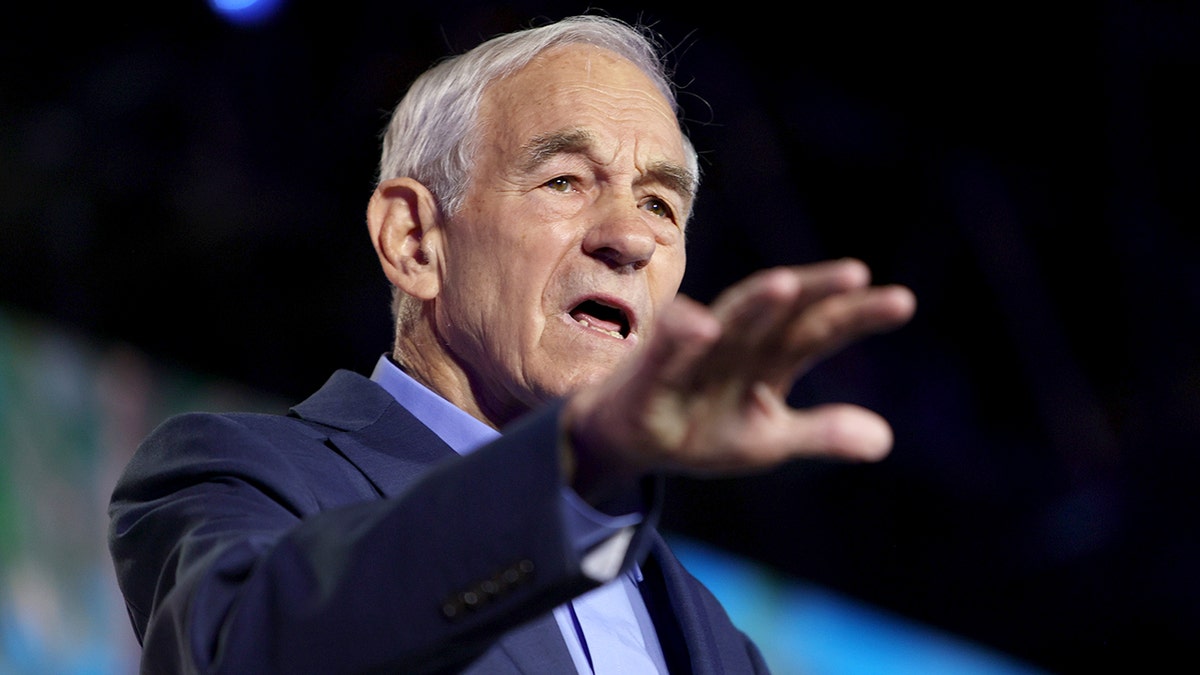
Former Rep. Ron Paul, R-Texas, speaks at the Bitcoin convention, a cryptocurrency conference held at the Mana Convention Center in Miami on June 4, 2021. (Joe Raedle/Getty Images)
Trump administration allies have also pointed out that it is carrying out a directive by Congress that’s long been stalled, but that the current White House took no part in deciding.
CLICK HERE TO GET THE FOX NEWS APP
Fox News Digital reached out to the White House and TSA for further comment. Massie’s spokesman said he was not available for an interview when reached by Fox News Digital.
Fox News Digital’s Cameron Arcand contributed to this report.
House Of Representatives,Republicans,Donald Trump,Politics
INTERNACIONAL
Familiares de presos políticos inician huelga de hambre en Venezuela: la esposa de Nahuel Gallo le reclamó su libertad a Delcy Rodríguez
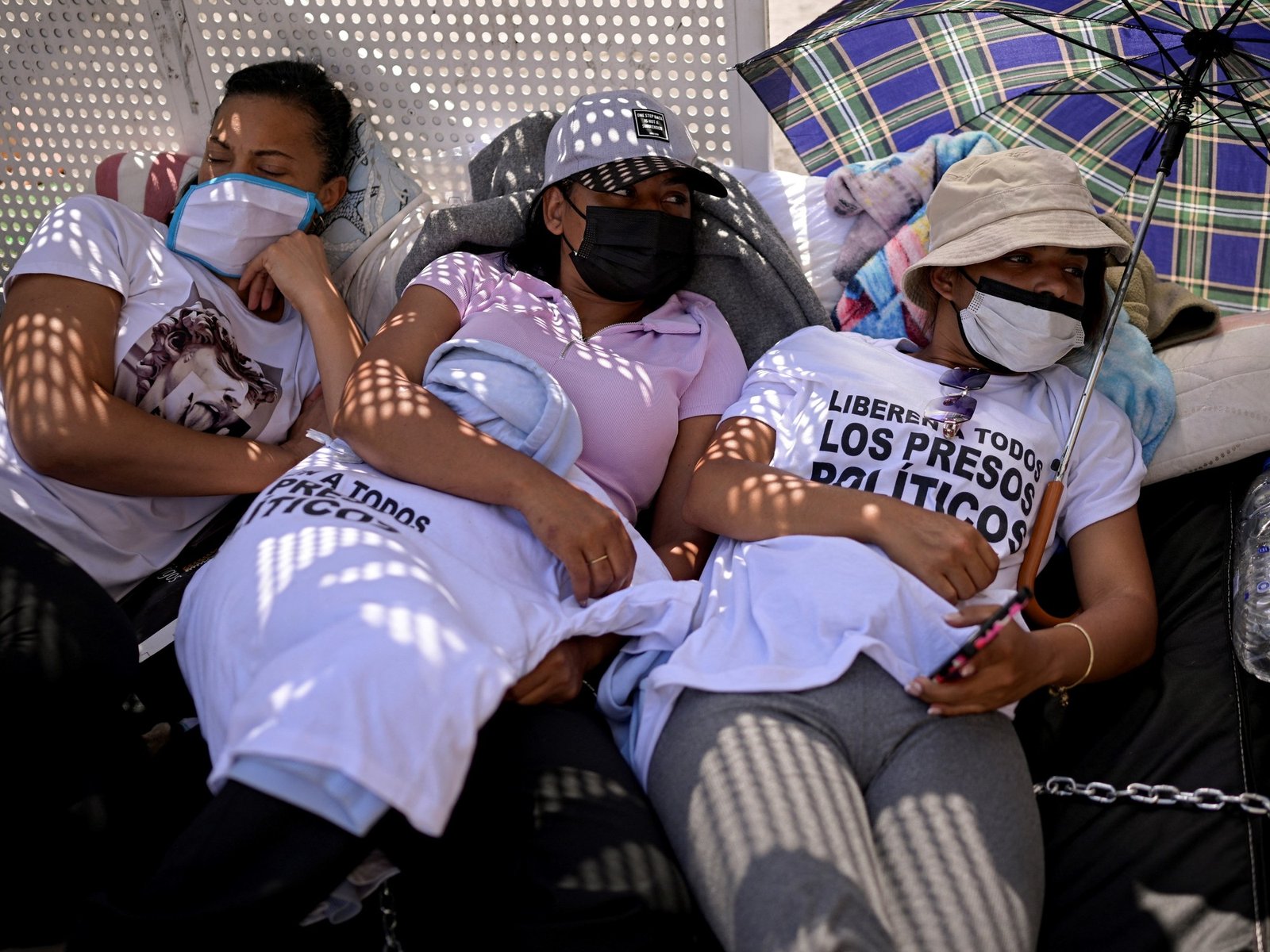
Molestos por la decisión del Parlamento de Venezuela de prorrogar una semana más el tratamiento de la Ley de Amnistía para terminar de liberar a los presos políticos del régimen de Nicolás Maduro, familiares de los detenidos iniciaron sábado una huelga de hambre en Caracas para reclamar más excarcelaciones.
Si bien durante la madrugada fueron excarcelados 17 presos políticos de los calabozos de la Policía Nacional, un grupo de diez familiares decidió llevar adelante la protesta luego de que no se cumplieran los plazos anunciados por la gestión de la presidenta interina, Delcy Rodríguez.
Es que su hermano, el presidente de la Asamblea Nacional, Jorge Rodríguez, había dicho a principios de febrero que en la semana que pasó iban a ser liberados «todos los presos políticos».
En Caracas, diez mujeres usando tapabocas se acostaron en línea con la lista de sus nombres escrita a mano en la entrada de Zona 7, donde acampan familias desde hace más de un mes, para pedir celeridad en la salida de prisión de sus familiares como parte de un proceso de liberaciones que la presidenta encargada Delcy Rodríguez anunció el 8 de enero, bajo fuertes presiones de Washington.
En medio de esa protesta, la presidenta Rodríguez usó la red social X para felicitar a un equipo de beisbol, el deporte más popular del país, por un triunfo en un partido de anoche en Caracas. Y, ese posteo, fue aprovechado desde Argentina por la esposa de Nahuel Gallo para reiterar su reclamo por su liberación.
Libertad para Nahuel Agustín Gallo, 433 días lo han tenido en Desaparición Forzada en el Rodeo 1. BASTA dejen de fingir que no pasa nada.
— Maria alexandra Gomez (@gg_alexand95764) February 14, 2026
La venezolana María Alexandra Gómez, quien reclama la liberación de su marido, un gendarme catamarqueño que fue atrapado hace dos años cuando ingresó al país para visitar a su familia durante las Fiestas de Fin de Año, le estampó como respuesta a la funcionaria su pedido y le recordó que desde hace «433 días lo han tenido en Desaparición Forzada en el Rodeo 1″.
«BASTA dejen de fingir que no pasa nada», cerró su mensaje Gómez desde Buenos Aires, donde espera junto a su hijo el regreso de Gallo.
En tanto, los familiares de otros presos políticos que comparten su reclamo en Caracas explicaron que con la huelga de hambre que iniciaron hoy exigen «que ya se concrete y sea real la liberación de todos». «Es justo, es justo. Ya tenemos muchísimo tiempo en esto», dijo a la agencia AFP Evelin Quiaro, 46 años, madre de uno de los detenidos y funcionaria del servicio de migración.
Su hijo de 30 años está detenido desde noviembre de 2025, acusado de terrorismo, asociación para delinquir y financiamiento al terrorismo.
Entre los excarcelados este sábado se encuentra José Elías Torres, secretario general de la Confederación de Trabajadores de Venezuela (CTV), preso desde noviembre sin orden judicial, informó en X el Comité por la Libertad de los Presos Políticos.
Desde que el 3 de enero Nicolás Maduro fue sacado del país por una intervención militar estadounidense, Delcy Rodríguez actúa como presidenta a cargo y propuso una ley de amnistía el 30 de enero.
Pero, en el Parlamento local la discusión final para su aprobación se ha aplazado dos veces. La última fue el jueves cuando se dispuso posponer la discusión una semana más para que los diputados se pongan de acuerdo si abarcará los 27 años del chavismo o si estará acotada a un período determinado. La próxima sesión está prevista para el jueves 19 de febrero.
Rodríguez, quien era vicepresidenta de Maduro, asumió funciones de forma temporal y en las últimas semanas llevó adelante una agenda de acuerdos petroleros y excarcelaciones de presos políticos, al tiempo que ha dado un vuelco en la relación con Estados Unidos, rota desde 2019.
De acuerdo con la ONG Foro Penal, desde el 8 de enero 431 presos políticos han obtenido libertad condicional y 644 permanecen aún en prisión.
«Lo que estamos pidiendo con esto es que ya sean liberados todos, como se nos prometió», indica por su parte otra huelguista, Sachare Torrez, de 23 años.
Con información de agencias
INTERNACIONAL
Catholics, conservatives cheer ouster of ex-Miss California from WH religious panel after hijacking hearing
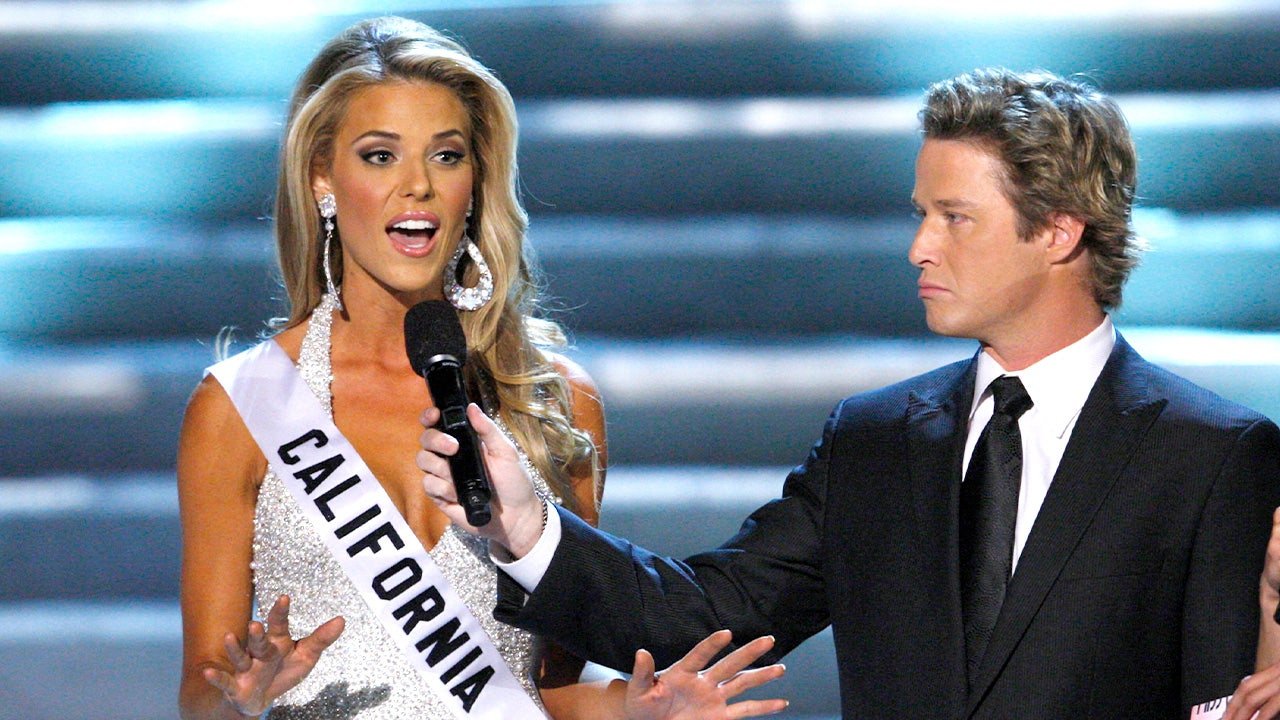
NEWYou can now listen to Fox News articles!
The Trump administration swiftly removed Carrie Prejen Boller, a former Miss California winner, from a White House religious council amid accusations she worked to «hijack» a hearing on antisemitism, earning applause from religious leaders and conservatives.
«Carrie Prejean was thrown off the Religious Liberty Commission, and thank God,» a former Trump White House official told Fox News Digital in reaction to the ouster. «These commissions exist to advance the President’s agenda, not to serve as a personal Jew-hating platform.»
Prejean Boller was ousted from the White House Religious Liberty Commission after she worked to «hijack a hearing» held Monday regarding antisemitism in the U.S. to promote her «own personal and political agenda on any issue,» according to chair of the commission, Texas Lt. Gov. Dan Patrick.
Prejean Boller is the 2009 Miss California USA winner who was stripped of her crown over allegations of breaching contract. She gained nationwide attention in 2009 for speaking out against legalizing gay marriage from the pageant’s stage.
MAMDANI’S ANTISEMITISM CZAR ONCE SLAMMED POST CONDEMNING HAMAS TERROR ATTACKS
Trump owned the Miss Universe Organization at the time and defended Prejean Boller, then Carrie Prejean.
Carrie Prejean Boller was removed from a White House religious council amid accusations she «hijacked» a hearing on antisemitism. (Steve Marcus/Reuters)
Trump established the religious liberty commission in May via an executive order directing the Department of Justice to provide support to the newly formed body focused on upholding «Federal laws that protect all citizens’ full participation in a pluralistic democracy, and protect the free exercise of religion.»
The commission held a hearing Monday at the Museum of the Bible in Washington, D.C., on combating antisemitism and upholding religious freedom, where Prejean Boller wore a Palestinian flag pin and got into tense exchanges.
Prejean Boller converted to Catholicism from evangelical Christianity in April and invoked her Catholic faith in comments rejecting Zionism during the hearing.
TARGETED FOR THEIR FAITH OVERSEAS, PERSECUTED CHRISTIANS GET A WHITE HOUSE WELCOME UNDER TRUMP
«I am a Catholic, and Catholics don’t embrace Zionism,» she said.
Catholic League President Bill Donohue swiftly called for her ouster in an opinion piece published on his organization’s website, underscoring that she did not represent Catholics in her remarks.
«Prejean Boller is a former Miss California and a convert to Catholicism,» he wrote Wednesday. «She does not run a Catholic organization, has no Catholic credentials as an author or instructor, and indeed represents no one but herself. For her to say, without qualification, that ‘Catholics do not embrace Zionism,’ is presumptuous and arrogant.»
«Zionism is a movement that promotes Jewish self-determination in a homeland,» he said. «There are millions of Catholics like myself who, even if they do not identify themselves as Zionists, recognize the Jewish state of Israel. Prejean Boller apparently does not—she is more comfortable showing up at the Religious Liberty Commission wearing a Palestinian flag pin. So telling.»
Shawn Carney, president and CEO of 40 Days for Life pro-life group, added in comment to Fox Digital that her «claim that Catholics are against Jews is absurd.»
«This division is a recent fad and an online invention,» Carney said. «For centuries, Catholics have understood that Jesus Christ is the fulfillment of the Davidic kingdom and that our faith comes from the Jews. Catholic teaching holds that the Church is the fulfillment of the promises of the Old Covenant. To suddenly claim that Catholics are against Jews is absurd — it is a modern, internet-based error.»
He added that Trump has a very strong track record of hiring and appointing Catholics to his administration, noting «no president in modern history has done more to protect religious liberty for both Catholics and Jews.»

US President Donald Trump bows his head in prayer during the National Prayer Breakfast at the Washington Hilton in Washington, DC on February 5, 2026. (Saul Loeb/AFP via Getty Images)
At one point, Prejean Boller got into a heated exchange with Shabbos Kestenbaum, a former Harvard student who sued the university over its response to antisemitism.
«Are you willing to condemn what Israel has done in Gaza?» Prejean Boller asked Kestenbaum during the hearing. «You won’t condemn that? Just on the record.»
She also defended Candace Owens when pressed by Babylon Bee Founder and CEO Seth Dillon if the commentator had ever made antisemitic remarks.
«Do you think anything Candace has said is antisemitic?» he asked her, after referring to Owens as one of the «most famous antisemites» in the current political landscape.
«No, I don’t,» Prejean Boller replied.

Donald Trump, when he was the owner of the Miss Universe Organization, poses with Miss California USA, Carrie Prejean on May 12, 2009. (Lucas Jackson/Reuters)
The former Trump White House official continued in comment to Fox Digital that backing Israel has long been a priority for President Donald Trump.
«President Donald Trump has been clear for decades that he stands proudly with the Jewish people and with America’s closest ally, Israel,» the former official said. «Supporting Israel and standing with Jewish Americans is not just morally right, it is America First.»
TRUMP SAYS GOP, MAGA MOVEMENT DOESN’T NEED, DISLIKES PEOPLE WITH ANTISEMITIC VIEWS
«President Trump delivered historic victories for the Jewish people. He recognized Jerusalem as Israel’s capital and moved the U.S. Embassy there. He recognized Israeli sovereignty over the Golan Heights. He brokered the Abraham Accords and reshaped the Middle East. He kept his promise to bring every last hostage home and made clear that antisemitism at home will be confronted head on, including holding universities accountable when Jewish students are targeted.»
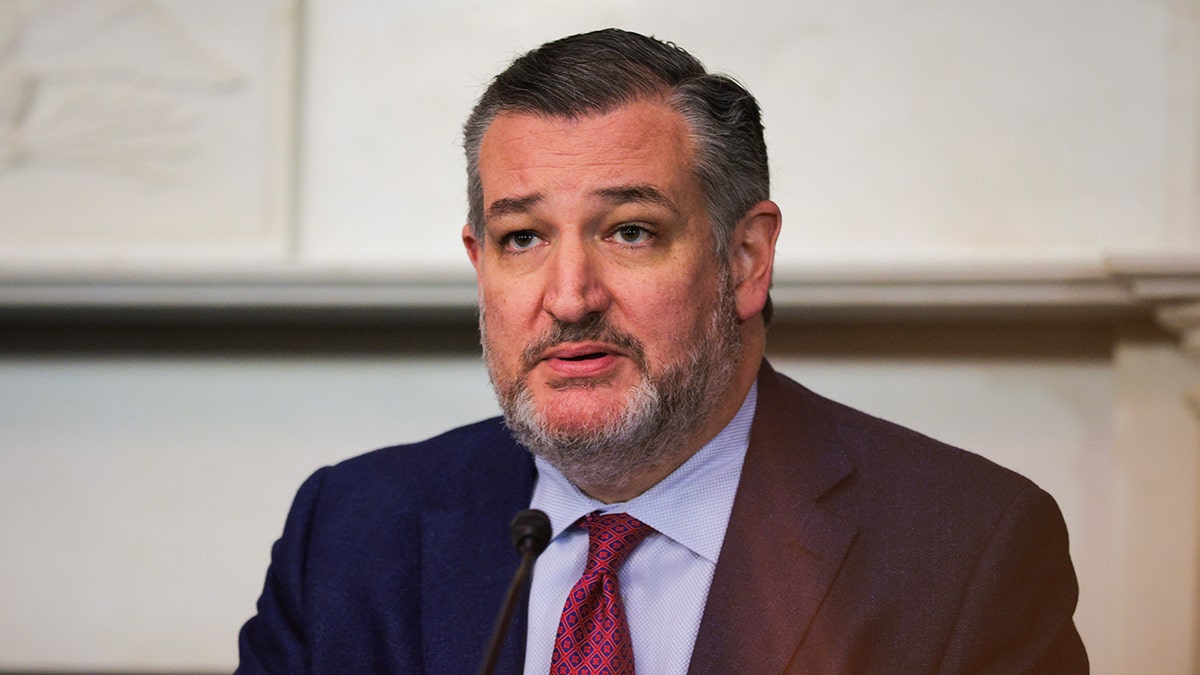
Texas Republican Sen. Ted Cruz criticized Carrie Prejean Boller for her remarks at a hearing on antisemitism on Feb. 9, 2026. (Kayla Bartkowski/Getty Images)
Conservatives and others on social media celebrated her ouster while condemning her remarks at the hearing.
«The only one who brought up Zionism at the event was … Carrie Prejean Boller,» account Bonchie posted. «Classic grifter play happening here. Cause a scene of her own making, claim to be the victim, profit. A story as old as time.»
«Whatever you think of the rest of Carrie Prejean Boller’s views, wearing a Palestinian flag to a hearing on religious liberty is disgraceful,» president of WorldStrat information warfare firm and chief editor of the Middle East Forum Jim Hanson posted.
Texas Republican Sen. Ted Cruz said that while he does not personally know Prejean Boller, what he saw of her actions was «just sad.»
«There are 57 Muslim countries on earth; this poor thing has been deluded into thinking that the fact that Israel exists — in the promised land given to the Jewish people thousands of years ago by Jehovah — is somehow the source of all her troubles.» he wrote. «And no, Catholics don’t hate Israel. As Charlie Kirk said repeatedly, antisemitism is a brain rot, and someone has been pouring this poison into her head.»
FOX NEWS ‘ANTISEMITISM EXPOSED’ NEWSLETTER: WALZ SHOCKS WITH MISGUIDED HOLOCAUST COMPARISON
Patrick said he personally made the decision to remove her, while Prejean Boller responded on X that only the president could order her removal.
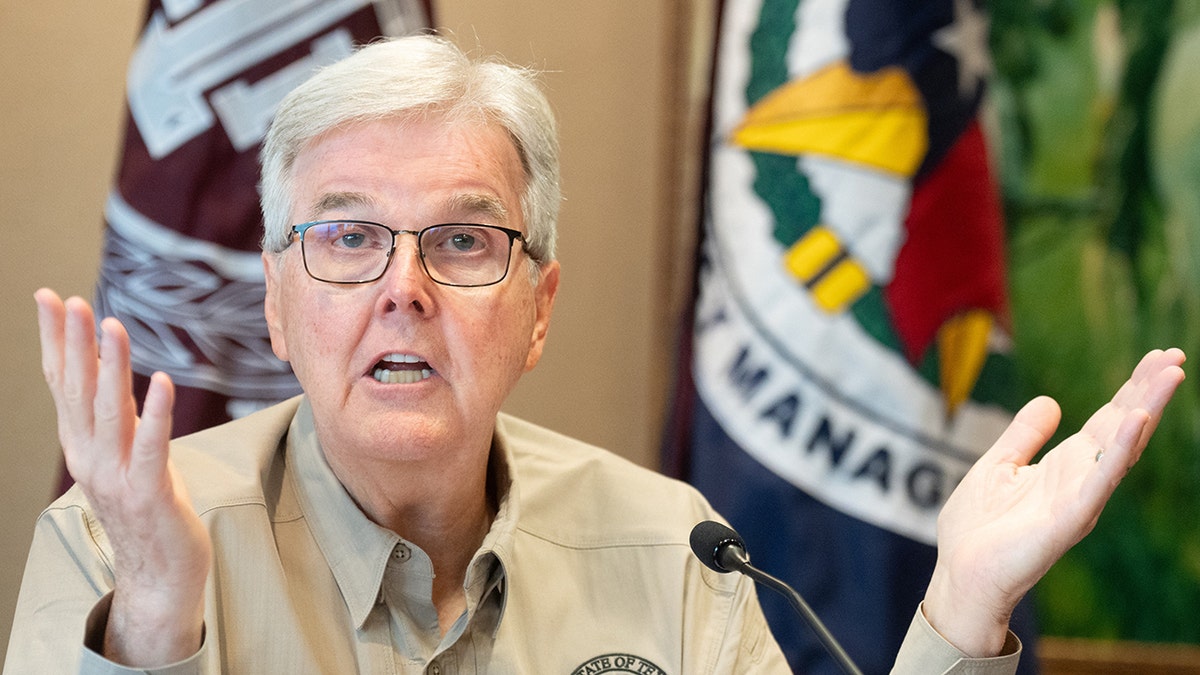
Texas Lt. Governor Dan Patrick serves as the chair of the White House Religious Liberty Commission. (Jason Fochtman/Houston Chronicle)
«You did not appoint me to the Commission, and you lack authority to remove me from it,» Prejean Boller wrote on X in response to Patrick. «This is a gross overstepping of your role and leads me to believe you are acting in alignment with a Zionist political framework that hijacked the hearing, rather than in defense of religious liberty.»
Cruz shot back on X: «Let’s be clear: it was President Trump who fired her.»
The former Miss California has continued to stick by her remarks, saying she «will never bend the knee to the state of Israel. Ever.»
CLICK HERE TO DOWNLOAD THE FOX NEWS APP
«Christians have been manipulated into believing that God blesses bombing, starvation, and mass killing,» Prejean posted to X. «That is the opposite of Christ, who came to stand with the suffering and confront power. I reject that lie completely. I am not owned by money, donors, or access. I belong to Christ alone who is the Way, the Truth, and the Life. I would rather die than bend the knee to Israel.»
Fox News Digital reached out to the White House for additional comment on the matter Thursday, and attempted to reach Prejean Boller Friday for comment.
white house,donald trump,religion,israel,christianity,roman catholic
INTERNACIONAL
El heredero del sah de Irán propuso liderar la transición hacia la democracia en el país si el régimen ayatolá cae

Reza Pahlavi, hijo exiliado del último sha de Irán, se declaró dispuesto a liderar el país hacia un “futuro democrático secular” durante su discurso en un evento público en Múnich, al que acudieron más de 200.000 personas.
“Estoy aquí para garantizar una transición hacia un futuro democrático secular”, expresó y sumó: “Me comprometo a ser el líder de la transición para que un día podamos tener la oportunidad final de decidir el destino de nuestro país a través de un proceso democrático y transparente hasta las urnas”.
La multitud coreó “Javid shah” (larga vida al sha) mientras ondeaban banderas con el emblema de la monarquía derrocada. “El régimen iraní es un régimen muerto. Se acabó”, expresó un manifestante iraní de 62 años.
Pahlavi instó a los iraníes dentro y fuera del país a continuar las protestas, llamando a corear consignas desde casas y tejados a las 20:00 del sábado y del domingo, en sincronía con manifestaciones en Alemania y otros países.
Miles de personas marcharon en ciudades como Los Ángeles y Washington, en solidaridad con las protestas contra el régimen liderado por Ali Khamenei.
En una rueda de prensa anterior, el heredero del sah de Irán afirmó que no tiene intención de llegar al poder ni ponerse la corona en Teherán y agregó: “Mi único objetivo es ver el día en que la gente iraní pueda finalmente ser capaz de elegir su futuro gobierno democrático. El día que eso ocurra, considero que es el fin de mi misión política en la vida”, expresó durante el mitin en Múnich.
Pahlavi manifestó su convicción de contar con el respaldo de los iraníes. “La gente en Irán cree en mi liderazgo, porque saben que no tengo nada que ganar”, sostuvo. El heredero del sha insistió en que no busca ningún beneficio personal a cambio de su compromiso con el cambio político en su país. “No quiero nada a cambio”, remarcó.
Desde Estados Unidos, el presidente Donald Trump reiteró que un cambio de régimen en Irán sería “lo mejor”. En paralelo, confirmó que un segundo portaaviones se dirigía a Medio Oriente para aumentar la presión militar sobre Teherán.
Previamente, advirtió con una intervención militar en apoyo a las protestas que en enero alcanzaron su punto máximo y fueron reprimidas brutalmente. La violencia de la Guardia Revolucionaria contra los manifestantes causó miles de muertes según organizaciones de derechos humanos.
“Al presidente Trump… El pueblo iraní le escuchó decir que la ayuda está en camino y tiene fe en usted. Ayúdelos”, declaró Pahlavi ante la prensa en la Conferencia de Seguridad de Múnich. “Es hora de acabar con la República Islámica”.
Eli Afriat)
El jueves pasado, el líder opositor calificó como “revolución” las protestas masivas reprimidas en y admitió que buscó coordinar y apoyar a la oposición desde el exterior mediante la construcción de puentes entre grupos disidentes.
Pahlaví aseguró que el movimiento no se rendirá, aunque reconoció que la lucha podría prolongarse y seguir cobrando vidas humanas. “No hay vuelta atrás”, advirtió.
Según la ONG Human Rights Activists News Agency (HRANA), con sede en Estados Unidos, las manifestaciones dejaron más de 7.000 muertos, cifra que continúa en aumento debido a las restricciones a las comunicaciones impuestas por las autoridades iraníes.
Pahlaví calificó al régimen como “debilitado”, con el liderazgo oculto en búnkeres y familias trasladando sus bienes al extranjero. En ese sentido, remarcó que “un ataque selectivo contra los aparatos represivos —fuerzas de seguridad y la Guardia Revolucionaria— no sería una intervención externa, sino una acción humanitaria para la liberación” y consideró que podría “prevenir más asesinatos masivos”.
(Con información de AFP)
Business,Civil Conflict,Demonstrations,International Relations,Riots,Royals,Top Picture,Corporate Events,Diplomacy / Foreign Policy,Europe,Royals,Civil Unrest

 POLITICA3 días ago
POLITICA3 días agoA quién afecta la Reforma laboral: estos son los puntos clave del proyecto de Milei

 POLITICA3 días ago
POLITICA3 días agoReforma laboral: la modificación sobre accidentes o enfermedades ajenas al trabajo

 ECONOMIA3 días ago
ECONOMIA3 días agoCayeron 20% las ventas de automóviles en China y el régimen impone medidas para regular el mercado



